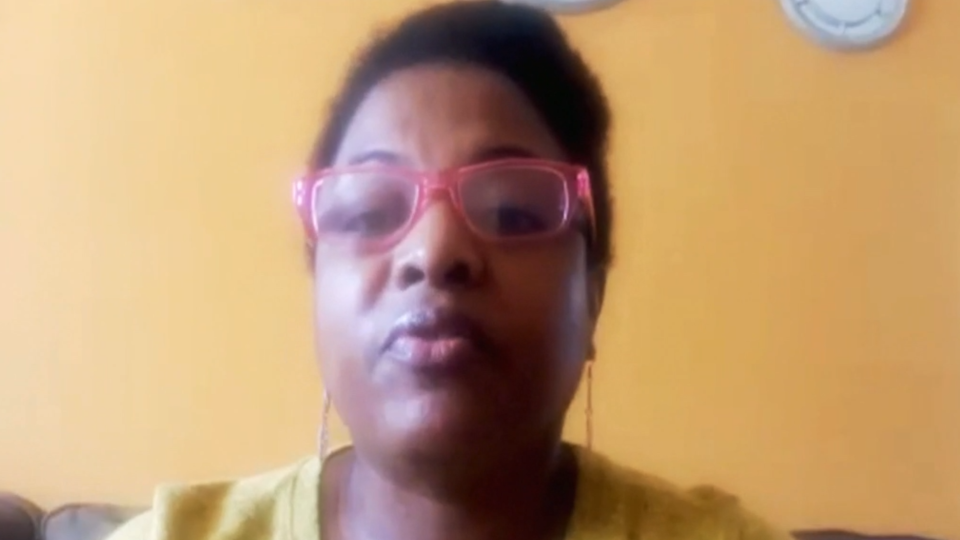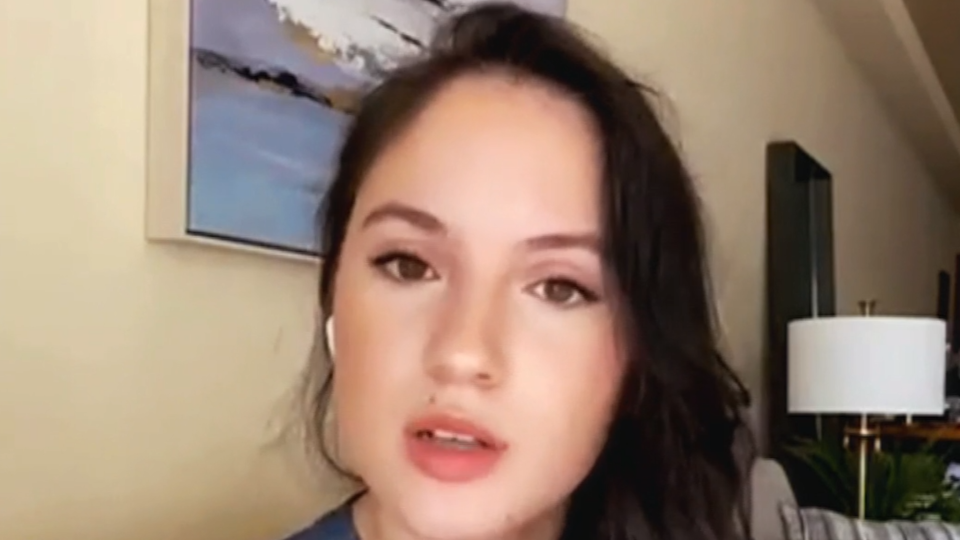"Broken" health care workers share huge mental toll of COVID-19
Frontline medical workers battling the coronavirus are suffering from stress and depression, according to the largest study of health care professionals at the height of the pandemic in New York City.
"Right now in COVID, the idea of being the health care hero, really adds this increased burden on individuals," said Dr. Marwah Abdalla, who conducted the study.
Nearly half the people surveyed saw depressive symptoms, while 57% had acute stress and nearly 75% experienced insomnia. CBS News' Dr. Tara Narula spoke with doctors and nurses across the country to hear how they are coping with trauma while watching millions of patients experience their own.
Dr. Tsion Firew, M.D., New York

Dr. Tsion Firew is an assistant professor of emergency medicine at Columbia University in New York City — what had once been the global epicenter of the virus.
"We just went from one patient to another without having any time in between to process what just happened," she said. "You try to fall asleep, but my mind was completely replaying what I went through — throughout the day."
Shee also recalled feeling "anxiety" over what he might encounter treating virus patients the next day.
"Would I really have to decide who lives and who dies?" Firew questioned.
Jacqueline Jackson, RN, New York

Jacqueline Jackson, a registered nurse at New York City's Lenox Hill Hospital, said she and her colleagues were "suffering" on the inside while doing what they "have to do" battling COVID-19.
Jackson had worked as a critical care trauma nurse for over 16 years, but said going to work through the pandemic made her question her own survival.
"Just to go through that raw emotions, that was just scary,' she said. "'I'm not gonna live tomorrow. Will I bring this home to my family? What am I gonna do?'"
She said she may be exhibiting "slight symptoms" of PTSD. "I can feel the difference in my personality. Because I'm usually a bubbly person, I think I've lost that," Jackson said.
The nurse also said she now suffers from insomnia and frequent nightmares.
"I close my eyes and I see the patient that I took care of last. I see... the images of suffering," she said. "I think that's gonna scar me for life."
Professor Nathan Nielsen, M.D., New Mexico

Associate Professor of Medicine Nathan Nielsen, M.D., of the University of New Mexico School of Medicine said he trained during his medical career "expecting that someday there may be a catastrophe."
When the pandemic broke out, he found himself living it — something Nielsen said no one is ever fully prepared for.
"I don't honestly know if I've been this tired in my life," he said. "We're all tired emotionally, intellectually, spiritually."
Nielsen said he meets the criteria for mild depression. He now has "emotional places" in his ICU where memories of particularly bad cases he experienced linger.
"A 24-year-old with children who died from a stroke, a 25-year-old man who died with his parent and his wife at his bedside," he said in tears. "It's still hard."
Neilsen said it even affected his day-to-day life.
"My fuse is shorter. I'm more irritable," he described. "I think I'm just frayed. You know, it's like being a rope, where you just twist and you twist, and eventually you fray."
Signs meant for hope, like billboards Neilsen sees honoring "health care heroes," have become "just another point of self-critique," though vocalizing it may feel taboo.
"I'm no hero. I'm broken, I'm hurting," he said. "The white coat makes a great straitjacket, and we don't talk about the things we need to. And that needs to stop."
Sarah Elizabeth, RN, Florida

Sarah Elizabeth is a registered nurse in Florida, working in a surgical progressive care unit which is also assisting in caring for COVID-19 patients.
After working as a nurse for two years, she said the horrors of the pandemic are already making her "almost rethink" her career choice and "what it is to be a nurse."
The 23-year-old now reports she suffering from nightmares about her "creepiest assignment."
"Like, did I do everything that I needed to do?" Elizabeth asked. "I feel like the anxiety is kind of just following me into sleep and so I'm not getting adequate rest."
Nurses who are treating critically ill patients are "there at the bedside for hours on end," even "at the end of life." As the U.S. death toll nears 200,000, health care professionals like Sarah Elizabeth are now facing death "maybe multiple times in a shift."
"We're absorbing that grief in those moments," she said. "We're kind of expected to just suck it up, to compartmentalize everything we see."
She expressed fear over not being "valued" as nurse after publicly expressing her and others' suffering.
"We're seen as resilient. That we're unbreakable," she said. "But we're human. We're human just as our patients are. And if we don't address what we have going on internally, it's really difficult to adequately care for our patients."
LSU Football Coach Ed Orgeron: The 60 Minutes Interview
Rescuers battle to save whales stranded in Australia
A helping hand: Nonprofit aims to aid special needs students

 money
money 